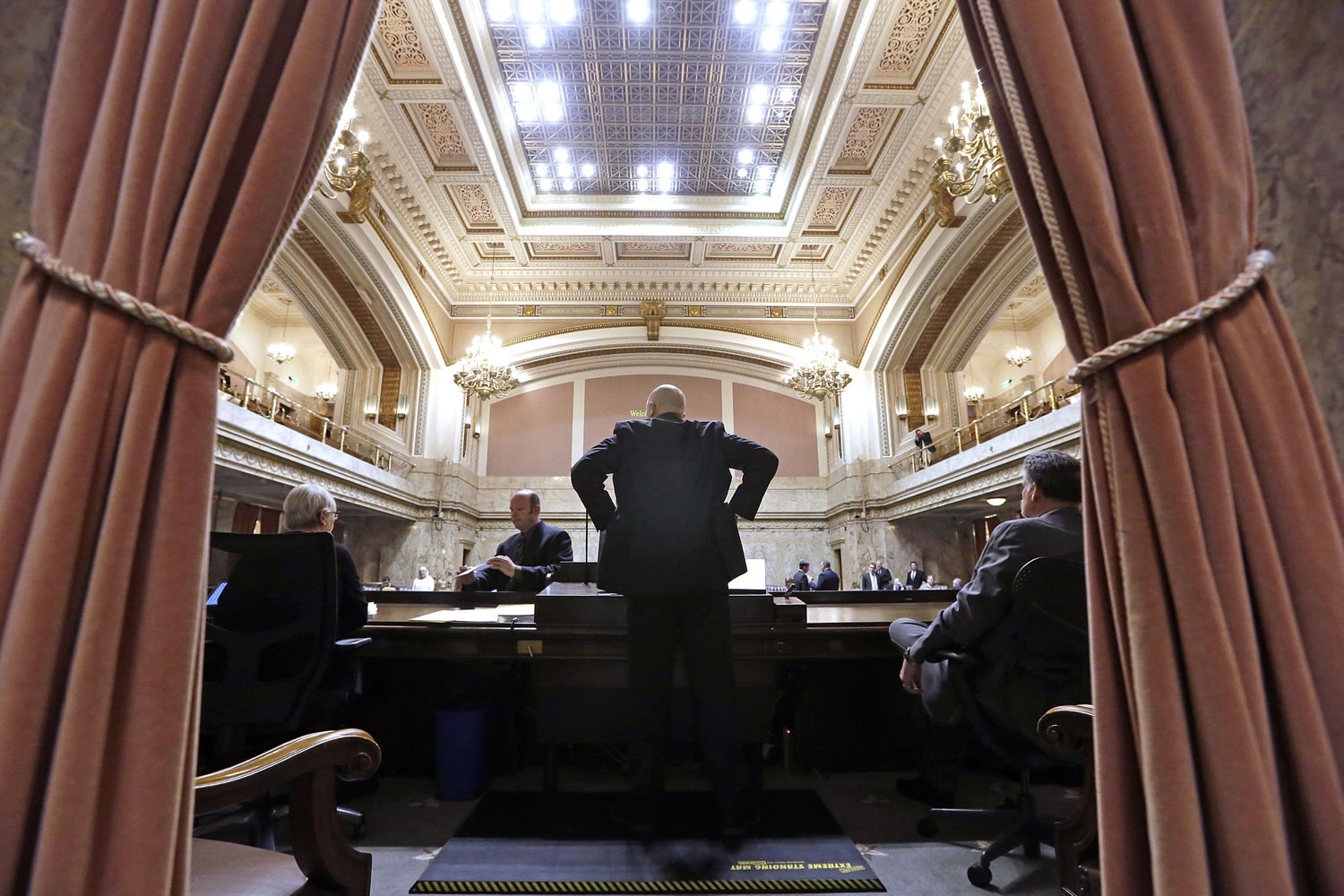The same day teachers statewide left their classrooms to protest a lack of progress in Olympia, a citizens commission approved an 11 percent pay raise for state lawmakers.
Rep. Jim Moeller, D-Vancouver, said both lawmakers and teachers are overdue for a raise.
Lawmakers failed to agree on a budget during the regular legislative session and are now back in Olympia for an overtime session. If the two sides can’t strike a deal on cost-of-living adjustments for teachers, Moeller said he will donate the additional income in his paycheck to charity.
“Everybody’s boat gets floated at the same time. That’s been my thing from the very beginning. Nobody goes forward unless everybody goes forward,” Moeller said.
Although the salary commission’s work isn’t connected to teacher wages, many have decried lawmakers receiving a pay boost before approving one for educators.
Sen. Ann Rivers, R-La Center, said for someone who is currently looking for a second job, news of a raise is welcome.
“It makes my desire to create parity for all state workers even greater,” Rivers said. “Since I think it would be hypocritical not to do my level best to make sure I wasn’t putting myself ahead of others.”
Rep. Paul Harris, R-Vancouver, said he knew what the salary was when deciding to run for office.
“I didn’t get into this to make money,” Harris said.
“I’ll never complain about my pay. I came into this fully knowing what I was getting into,” Harris said, adding that beginning teachers have received consistent step increases, despite the economic downturn.
The 11.2 percent raise over a two-year period will increase rank-and-file lawmakers’ wages to $46,839 a year. It’s the first pay increase since 2008 for lawmakers. The salary commission also increased pay for the governor, judges, chief justice of the state Supreme Court, attorney general, secretary of state, treasurer and auditor.
Rep. Brandon Vick, R-Felida, said 11 percent seemed “excessive.”
“I don’t think it’s the right time to do it and 11 percent is probably never a good number to go with,” he said.
Teachers protested, in part, to increase pressure on lawmakers to finalize a budget that includes giving them cost-of-living raises and lowering class sizes.
The state’s independent salary commission, which was created by voter approval in 1986, is made up of 17 unpaid members.
About half of the members are selected by the speaker of the House and president of the Senate based on their background, such as higher education, organized labor or business. The remaining members are chosen randomly from a pool of registered voters in different congressional districts.
The commission sets the salaries for 479 elected officials.
Rep. Lynda Wilson, R-Vancouver, does not intend to accept the increase.
“I will either donate it to charity or return it to the state. Now is not the proper time to be increasing our pay while the recovery from the Great Recession is so anemic,” Wilson wrote in an email. “If citizens do not agree with this increase, they always have the opportunity to file a referendum and repeal it through a vote of the people.”
Rep. Sharon Wylie, D-Vancouver, said she hadn’t thought much about the salary increase.
“The basics are, I didn’t ask for it and I knew what the salary was when I arrived here and we don’t have any control over what (the commission) does,” Wylie said. “I haven’t decided yet how to react to it, you’re the first person to ask.”




